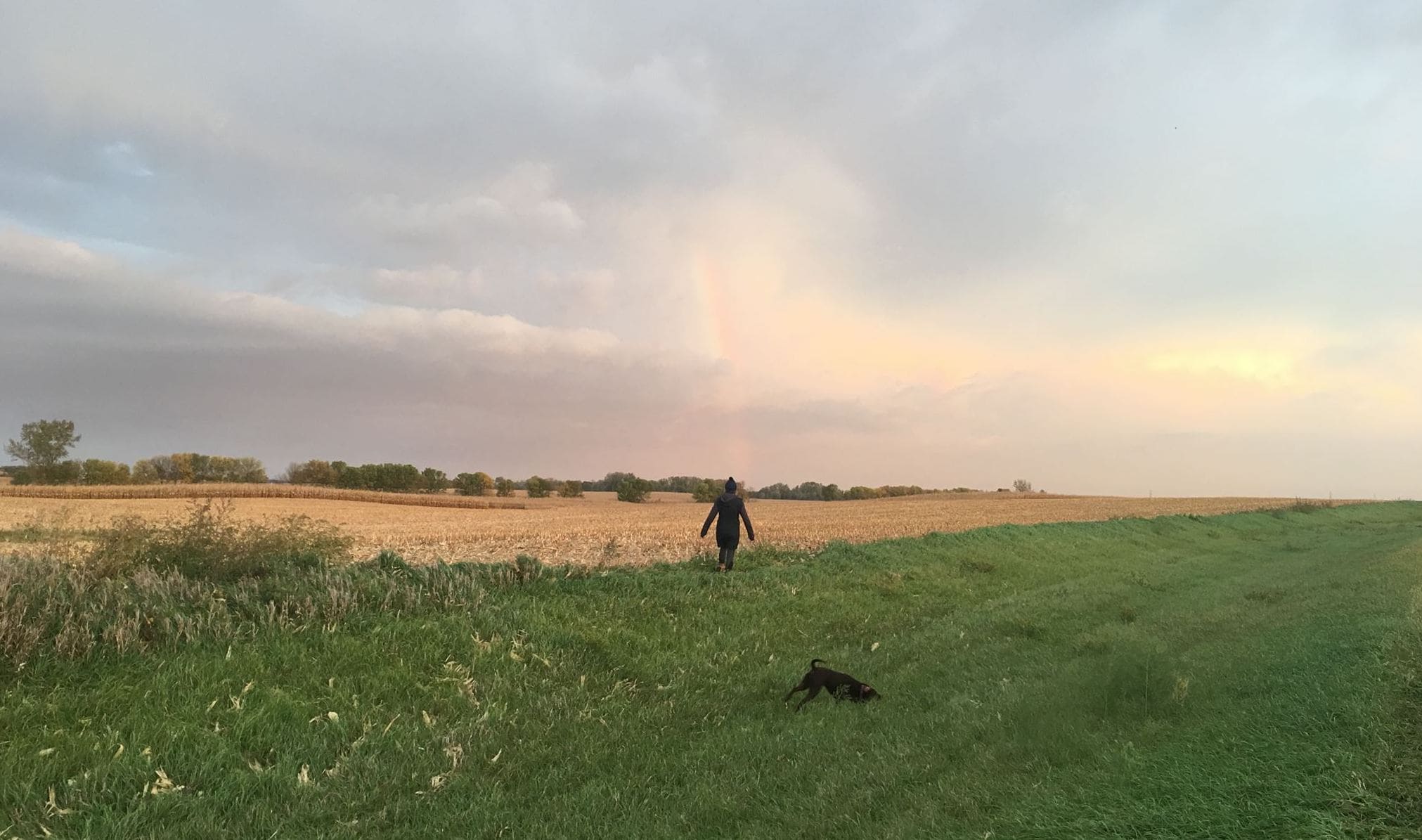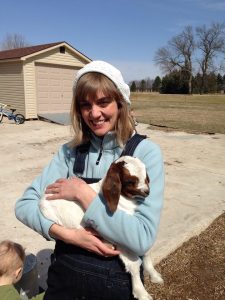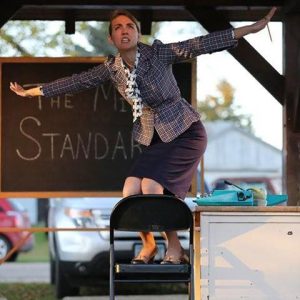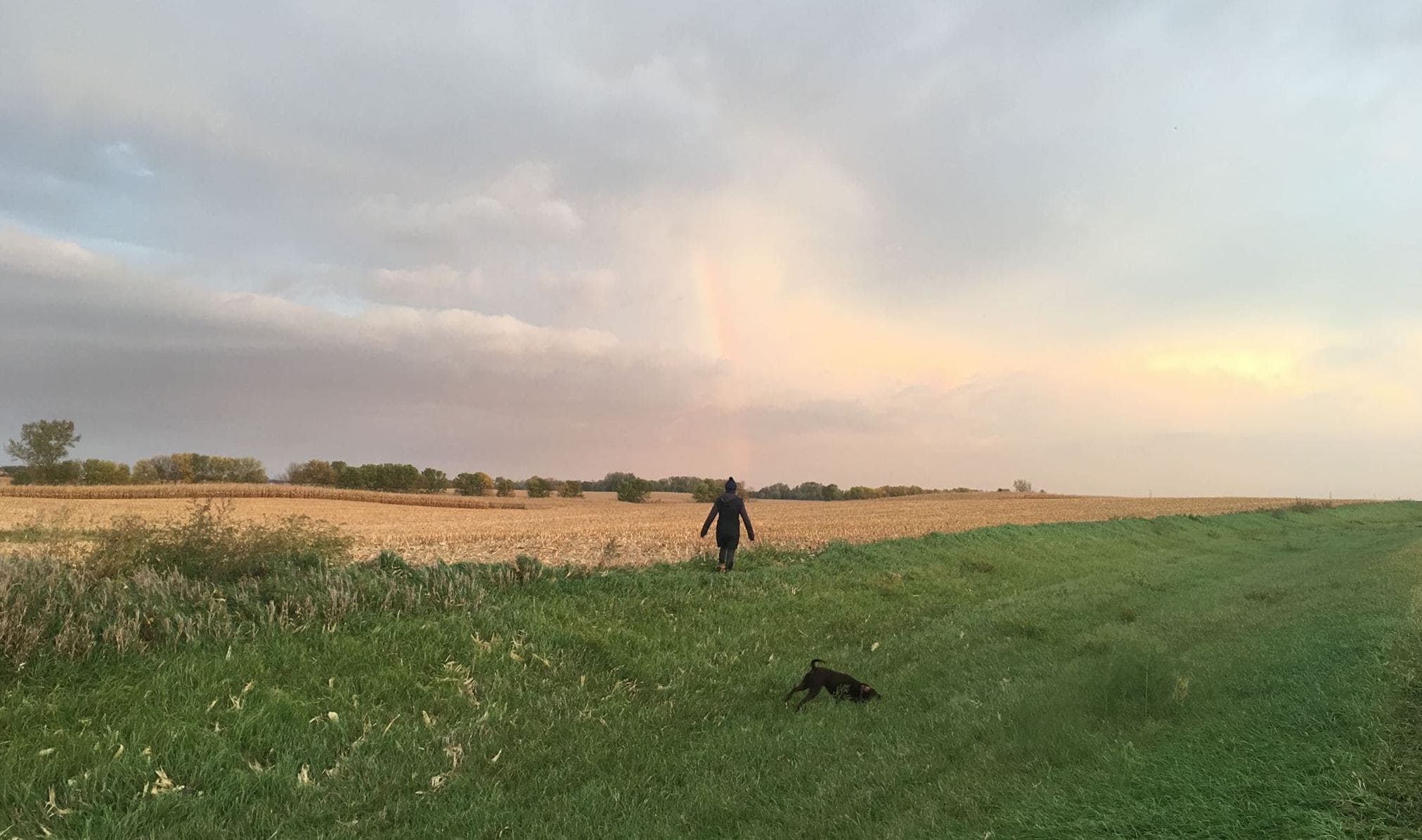
DAWSON, MN (October 15, 2018) – Poet Lauren Carlson was less than thrilled when her husband, Erik, graduated in 2010 from North Park Theological Seminary to accept a pastoral call at Dawson Covenant Church in this rural town of 1,400 people.
A native of Grand Rapids, Michigan, who grew up attending Thornapple Covenant Church, Carlson had been excited several years earlier to move to Chicago to attend North Park, where she earned her bachelor’s degree in English. “The city is so diverse. There is always something happening. There is always something new. It was really amazing for me as a young woman.”
Carlson knew that she and Erik probably would not remain in Chicago once he finished seminary, and she was fine with that. “I thought as long as we don’t have to go anyplace rural, I’ll be OK,” she says, laughing. “I think God takes that as a dare.”

When she learned they would be moving to Dawson, three hours due west of Minneapolis and much farther than that from any other large city—and a place where the land was flat and the buildings few—she prepared herself by reading a book of Wendell Berry essays Erik had given her. She says it helped her to look for “some space for contemplation.”
“I never had negative feelings, but I didn’t expect to have my imagination so captivated,” she says.
Since then, she has discovered life in the open spaces and creativity that flourishes in the emptiness. In the essay “After the Holocene” she wrote, “Here, on the prairie, we came to face the majesty of human absence every day.” It is where she lives “amidst revelation.”
Now, as a poet, essayist, spiritual director, cultural ambassador, and even webcast producer, Carlson hopes to help others be attentive to unfolding revelation in their own lives. She celebrates the wonder of place, people, and unexpected connections.
Poetry had sparked Carlson’s imagination when she was a child, yet she never saw it as something she would do seriously. “It’s just so impractical,” she says. “You can’t make a living writing poetry.”
But living in a place where her pace slowed down, Carlson says she had time to “give myself permission to pursue my vocational identity and listen to God’s movement in my life. I discovered that writing poetry was my deepest desire.”

Carlson’s story evokes Kathleen Norris’s, a writer who had reluctantly moved to the Plains from New York City and discovered her own inner “spiritual geography.” Carlson was offered the same writer’s residency at Collegeville Institute that Norris and Krista Tippett, another writer who explores spiritual connections, received.
When a local public television station asked her to produce a web series, she focused on the theme of revelation. In “Poems from the Field,” she interviews rural Minnesotans who talk about their lives and read poetry they have found meaningful. In one episode Randy Fjerkenstad, a farmer in Boyd, Minnesota, reads and reflects on Robert Frost’s poem “A Tuft of Flowers.” He tells Carlson that one of his favorite activities is to lie on top of a pile of grain he has harvested and gaze at the star-filled sky.

Leading residencies such as “Poetics of Chemistry: Formulas for Ourselves, Our World” and “The Shape of Me: Figurative Language in Geometry” allows Carlson to help others foster their creativity in unique ways. “I like to bring poetry and science together because I think they are different languages getting at the same thing,” she says. “It’s also unusual for people to see them in the same space. We’re used to putting things in boxes. We think things are contradicting instead of balancing each other.”
As a hobby farmer who has raised goats and chickens, Carlson says she has learned a little about connections between farming and writing poetry. “You think about the farmers and you realize what it takes for you just to have a meal,” she says. “You become grateful in a different way. I was thinking, ‘OK, I’m a poet and my work is to do the work of a poet. But I didn’t achieve this on my own. There are all these people who make it possible for me to do this. I think about that for every poem.”
“Due Season”
Once barren, the
dream breaks
into cornfields,
machinery reaping life.
The rumbling earth-shatter
of harvesters startles
the sleeping housewife
whose frantic hands fan
in all directions. She clings to the bed sheets.
All she sees is dark black earth,
an empty field, grain-trailer after
grain-trailer, hauling the harvest
to the elevator, the shadow of dust
haunting the gravel road.
She remembers.
It was there all along. Her neighbor’s
house appearing now after the
cornstalks are flattened, plowed back
under the field.
Am I, too, like her?
Gripping the bed while the house shakes,
scared of whatever it was
that disturbed my sleep
and opened my eyes?
Am I scanning
the horizon to find
what was forgotten?
Disappointed to see a house
and not a barren land,
where I was the only thing
wild and alive.
Originally published in 2016 in the poetry journal “Heron Tree“














